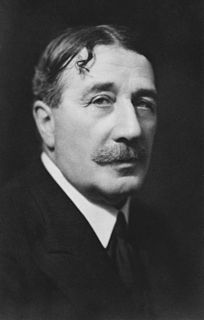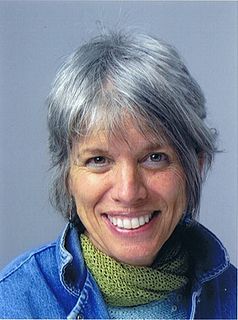A Quote by Marcel Proust
The opinions which we hold of one another, our relations with friends and kinsfolk are in no sense permanent, save in appearance, but are as eternally fluid as the sea itself.
Related Quotes
One ship is very much like another and the sea is always the same. In the immutability of their surroundings the foreign shores, the foreign faces, the changing immensity of life, glide past, veiled not by a sense of mystery but by a slightly disdainful ignorance; for there is nothing mysterious to a seaman unless it be the sea itself, which is the mistress of his existence and as inscrutable as Destiny.
Sentences are not different enough to hold the attention unless they are dramatic. No ingenuity of varying structure will do. All that can save them is the speaking tone of voice somehow entangled in the words and fastened to the page for the ear of the imagination. That is all that can save poetry from sing-song, all that can save prose from itself.
It is not just contemporary industrial society that is dysfunctional; it is civilization itself. We humans are born to be creatures of the land and the sea and the stars; we are relations to the animals, cohorts to the plants. Our well being, and the well-being of the very planet depend on our pursuance of our given place within the natural world.
And somewhat as in blind night, on a mild sea, a sailor may be made aware of an iceberg, fanged and mortal, bearing invisibly near, by the unwarned charm of its breath, nothingness now revealed itself: that permanent night upon which the stars in their expiring generations are less than the glinting of gnats, and nebulae, more trivial than winter breath; that darkness in which eternity lies bent and pale, a dead snake in a jar, and infinity is the sparkling of a wren blown out to sea; that inconceivable chasm of invulnerable silence in which cataclysms of galaxies rave mute as amber.
The good are like one another, and friends to one another; and ... the bad, as is often said of them, are never at unity with one another or with themselves, but are passionate and restless: and that which is at variance and enmity with itself is not likely to be in union or harmony with any other thing.
There is nothing to be known about anything except an initially large, and forever expandable, web of relations to other things. Everything that can serve as a term of relation can be dissolved into another set of relations, and so on for ever. There are, so to speak, relations all the way down, all the way up, and all the way out in every direction: you never reach something which is not just one more nexus of relations.
You will die. You will not live forever. Nor will any man nor any thing. Nothing is immortal. But only to us is it given to know that we must die. And that is a great gift: the gift of selfhood. For we have only what we know we must lose, what we are willing to lose... That selfhood which is our torment, and our treasure, and our humanity, does not endure. It changes; it is gone, a wave on the sea. Would you have the sea grow still and the tides cease, to save one wave, to save yourself?
In a deep metaphysical sense, all that is conditioned is illusory. All phenomena are literally 'appearances,' the outer masks in which the One Reality shows itself forth in our changing universe. The more 'material' and solid the appearance, the further is it from reality, and therefore the more illusory it is.
Our present urgency is to recover a sense of the primacy of the Universe as our fundamental context, and the primacy of the Earth as the matrix from which life has emerged and on which life depends. Recovering this sense is essential to establishing the framework for mutually enhancing human-Earth relations for the flourishing of life on the planet.
Governments may change, and opinions, and the very appearance of lands themselves, but the slowest thing to change is religion. What has once been associated with worship becomes holy in itself, and self-perpetuating, always built upon the foundation of mingled awe and attraction which the unknown has for the mind of man.







































